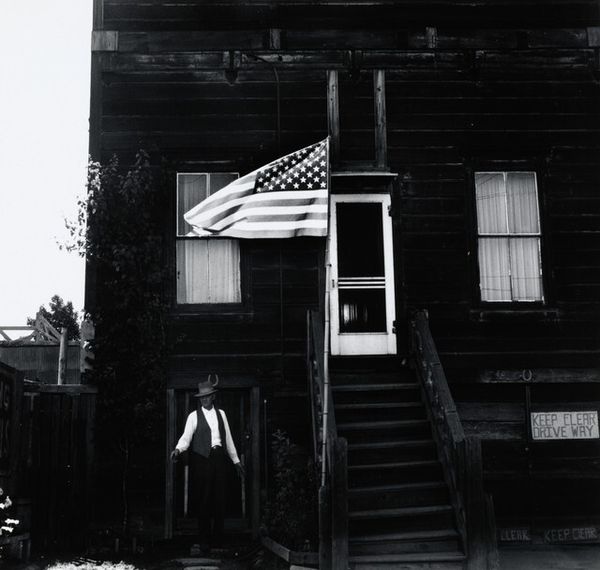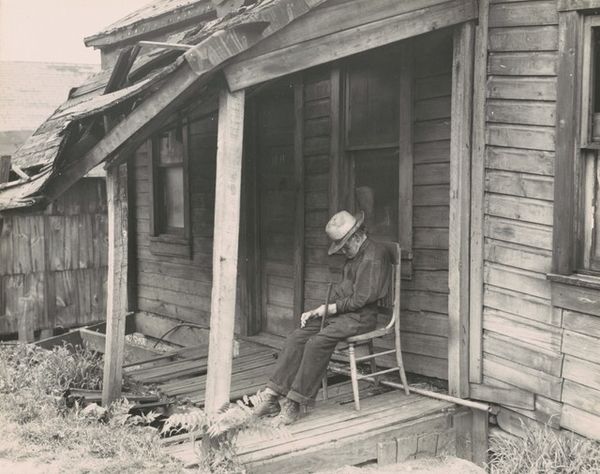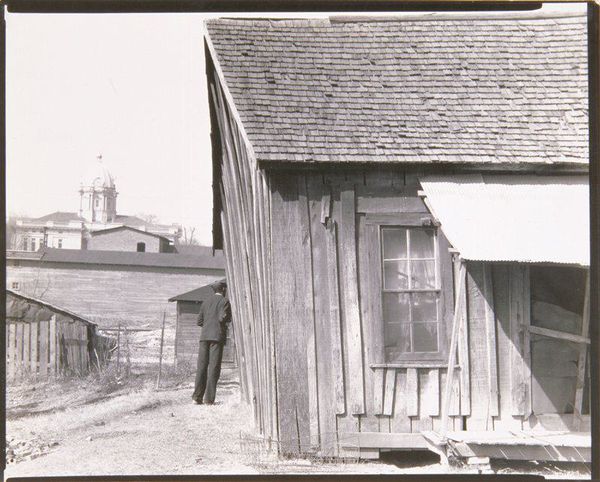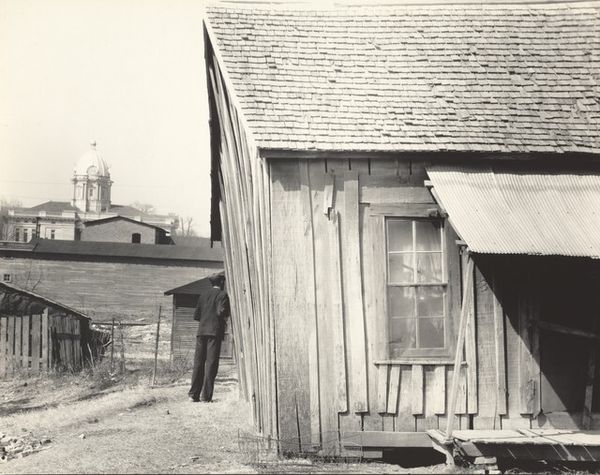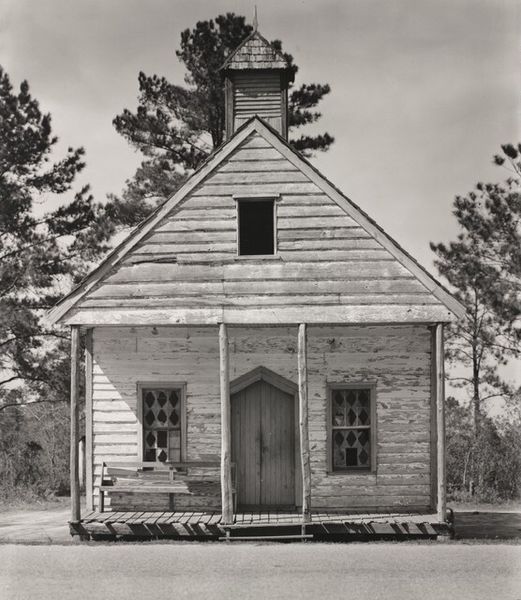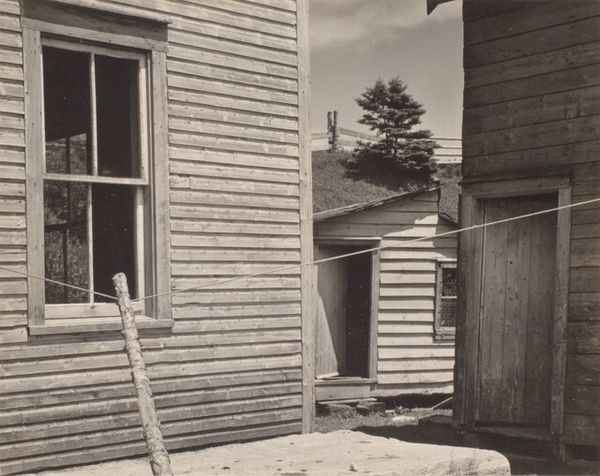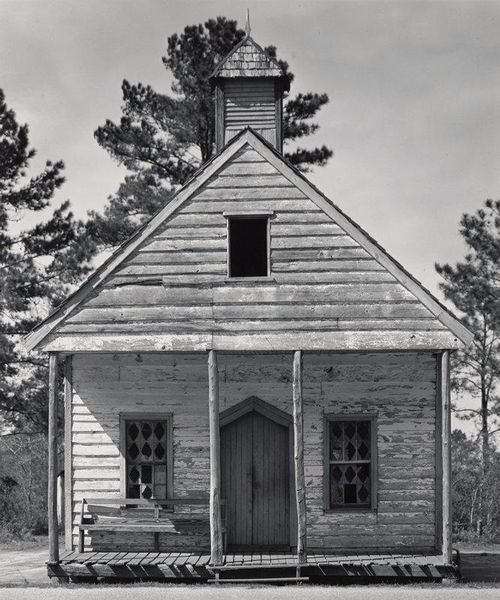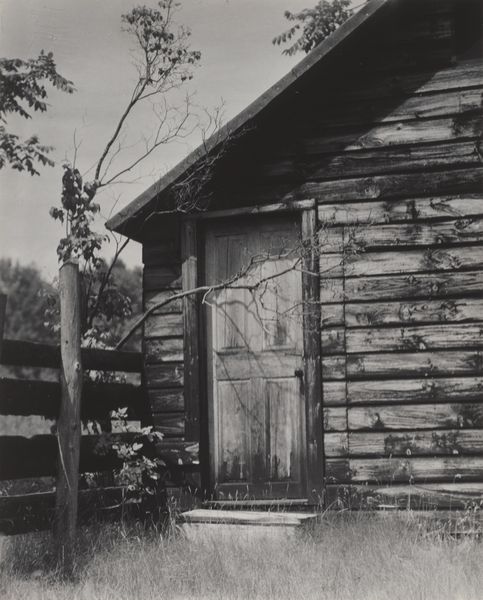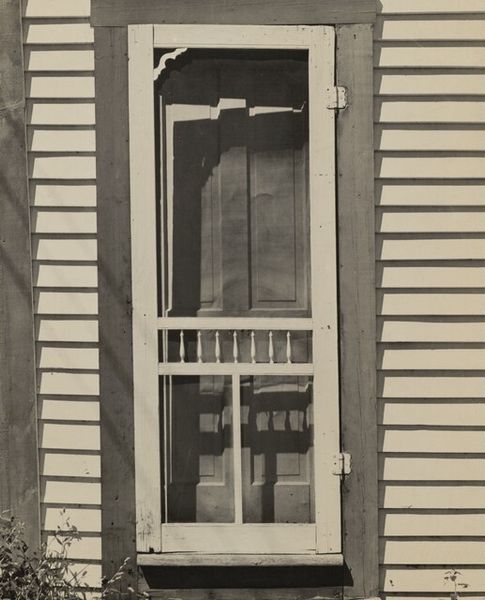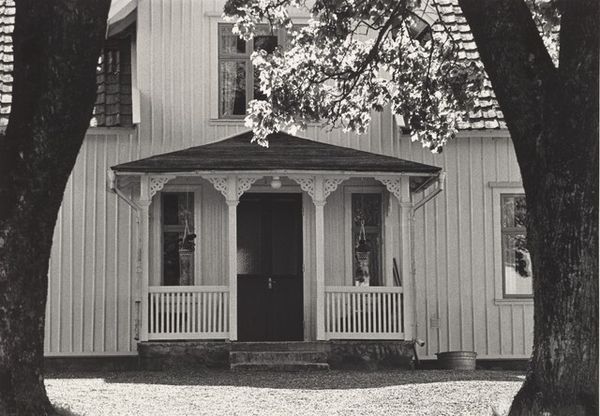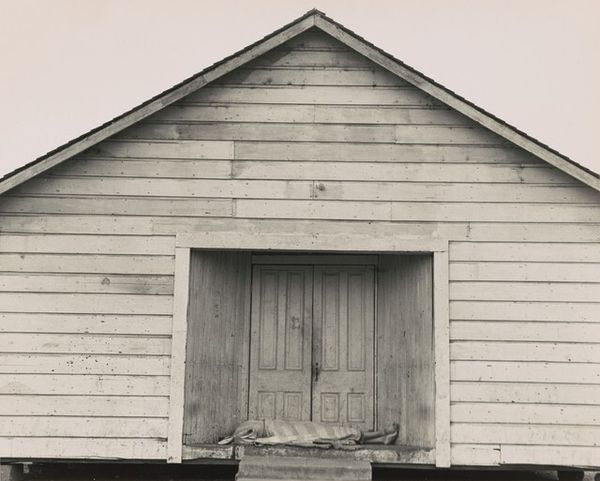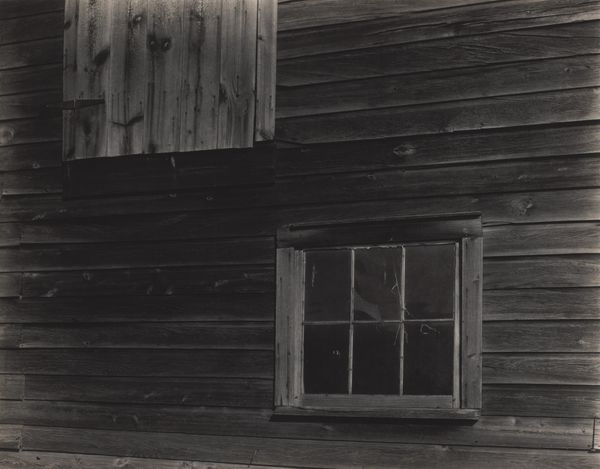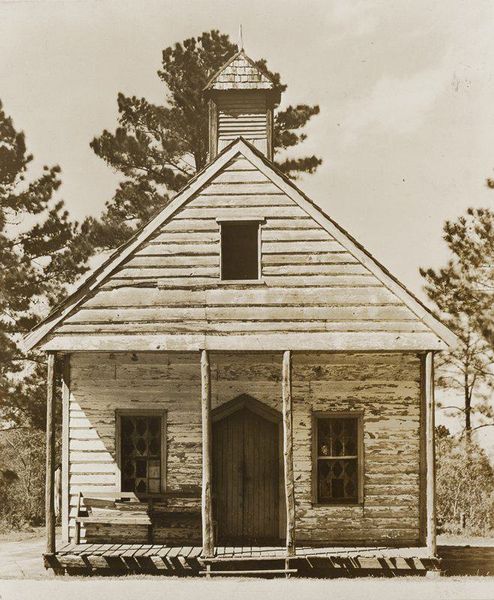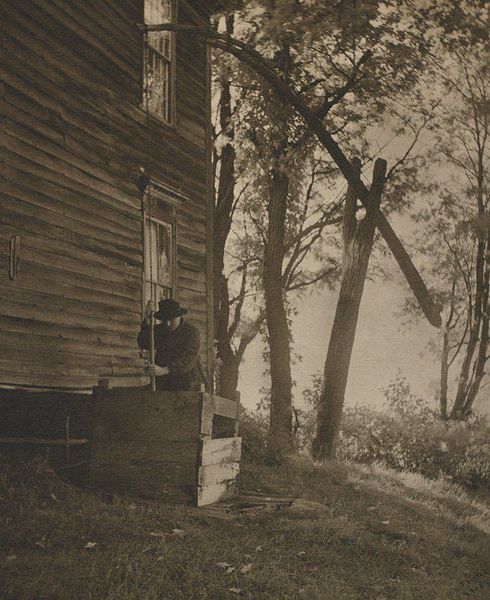
photography, gelatin-silver-print
#
portrait
#
black and white photography
#
landscape
#
black and white format
#
social-realism
#
street-photography
#
photography
#
black and white
#
gelatin-silver-print
#
monochrome photography
#
realism
#
monochrome
Dimensions: image: 24.4 × 19.3 cm (9 5/8 × 7 5/8 in.) sheet: 25.4 × 20.3 cm (10 × 8 in.)
Copyright: National Gallery of Art: CC0 1.0
Editor: Here we have Dorothea Lange’s photograph, "Post office and postmistress, Widtsoe, Utah," from 1936, a gelatin-silver print. It strikes me as quite stark and simple. The building's geometry is almost severe. What stands out to you compositionally? Curator: I am particularly drawn to the interplay between light and shadow that structures the visual field. Observe how the horizontal lines of the wooden planks create a rigorous grid, bisected by the verticality of the doorframe. This division emphasizes the formal qualities of the space itself. Do you notice how the figure, while central, serves almost as another geometric component within this larger framework? Editor: I do. It’s like she’s been placed within the building’s own composition, adding to the architectural feeling of the image rather than disrupting it. So you're seeing the person more like another aspect of line, light, and shape. Curator: Precisely. Her form echoes the building’s rigid structure. Furthermore, the subtle tonal gradations, from the sun-drenched facade to the shadowy interior, provide depth and visual interest independent of any narrative element. Notice how the details within the interior are subdued, making the geometric forms the visual priority. Editor: I guess I was expecting the figure to be more of a focal point, but you're right. I didn't notice the interplay of the lines nearly as much as I should have! I really see it now. Thanks for opening my eyes to that. Curator: My pleasure. The beauty of formalism lies in appreciating how these inherent structures generate meaning. We find, as a result, that art isn't always about 'something' but also and primarily *how* it's made.
Comments
No comments
Be the first to comment and join the conversation on the ultimate creative platform.
